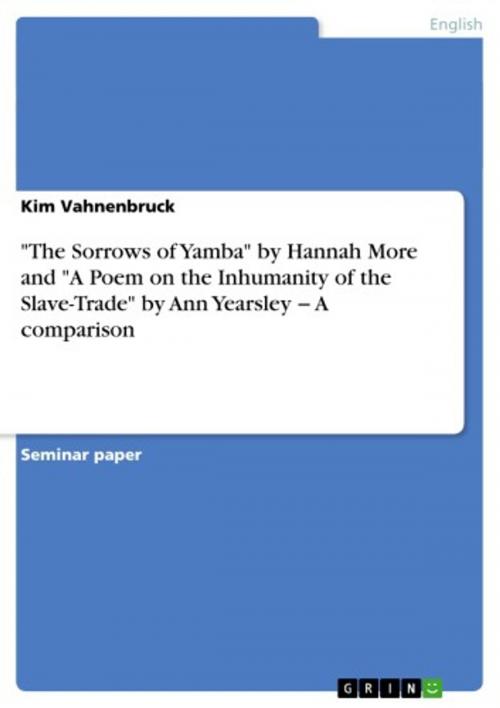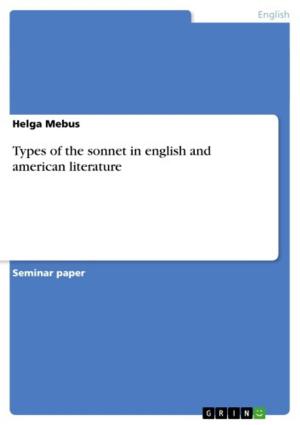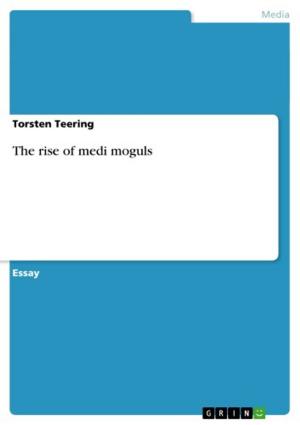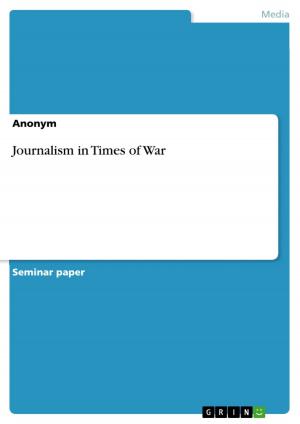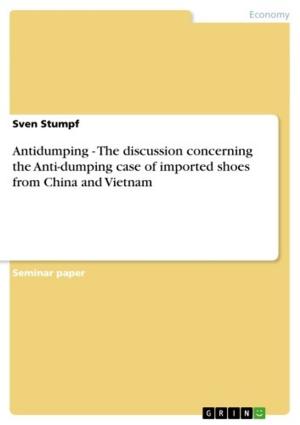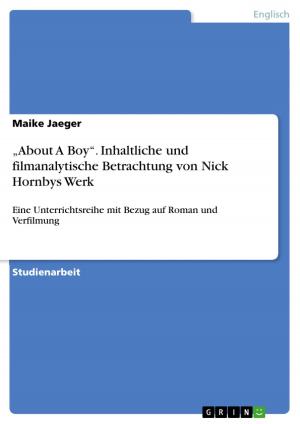'The Sorrows of Yamba' by Hannah More and 'A Poem on the Inhumanity of the Slave-Trade' by Ann Yearsley ? A comparison
Fiction & Literature, Literary Theory & Criticism, British| Author: | Kim Vahnenbruck | ISBN: | 9783640811939 |
| Publisher: | GRIN Publishing | Publication: | January 27, 2011 |
| Imprint: | GRIN Publishing | Language: | English |
| Author: | Kim Vahnenbruck |
| ISBN: | 9783640811939 |
| Publisher: | GRIN Publishing |
| Publication: | January 27, 2011 |
| Imprint: | GRIN Publishing |
| Language: | English |
Seminar paper from the year 2010 in the subject English Language and Literature Studies - Literature, grade: 2,3, University of Wuppertal, course: Romantic Women Writers, language: English, abstract: The issue of slavery can be considered to be of great importance during the 18th and 19th century in Great Britain. Since the 1770s there has been the formation of an abolitionist movement because rational thinkers of the Enlightenment criticized it for violating the rights of man and furthermore for being heresy. In 1790 the first abolition bill was presented to parliament, but it did not pass and it needed another 43 years until the abolition of slavery in the British Territories could be called a success. Especially women started to engage themselves in the abolitionist movement and tried to change the situation with means of sensibility and empathy. Therefore, I chose to analyze two poems by two very popular female anti- slavery writers, Anne Yearsley's A Poem on the Inhumanity of the Slave- Trade (1788) and Hannah More's The Sorrows of Yamba or the Negro Woman's Lamentation (1795) to show the perspective of a woman on slavery. The seminar 'Romantic Women Writers' serves as a basis for this paper. I will start with an outlook on the involvement of the two women in the anti- slavery discourse, show briefly what there lives were like, through what they were shaped and influenced and what their reasons were to act against slav- ery. In the main part I will focus on the two poems and compare them with regards to similarities and differences. Both poems tell a story about a slave and his or her life in captivity. There is on the one hand the story of Yamba in Hannah More's poem and on the other hand the story of Luco in the poem of Ann Yearsley. I chose this as a starting point for my analysis. For that, I will briefly look at the fictional characters Yamba and Luco to find out in how far they either resemble each other or differ from each other. Furthermore, I will analyze how Hannah More and Ann Yearsley use their means of sensibility and empathy and afterwards show the biggest contrasts of the two poems. Finally, I will summarize and evaluate my results in form of a conclusion.
Seminar paper from the year 2010 in the subject English Language and Literature Studies - Literature, grade: 2,3, University of Wuppertal, course: Romantic Women Writers, language: English, abstract: The issue of slavery can be considered to be of great importance during the 18th and 19th century in Great Britain. Since the 1770s there has been the formation of an abolitionist movement because rational thinkers of the Enlightenment criticized it for violating the rights of man and furthermore for being heresy. In 1790 the first abolition bill was presented to parliament, but it did not pass and it needed another 43 years until the abolition of slavery in the British Territories could be called a success. Especially women started to engage themselves in the abolitionist movement and tried to change the situation with means of sensibility and empathy. Therefore, I chose to analyze two poems by two very popular female anti- slavery writers, Anne Yearsley's A Poem on the Inhumanity of the Slave- Trade (1788) and Hannah More's The Sorrows of Yamba or the Negro Woman's Lamentation (1795) to show the perspective of a woman on slavery. The seminar 'Romantic Women Writers' serves as a basis for this paper. I will start with an outlook on the involvement of the two women in the anti- slavery discourse, show briefly what there lives were like, through what they were shaped and influenced and what their reasons were to act against slav- ery. In the main part I will focus on the two poems and compare them with regards to similarities and differences. Both poems tell a story about a slave and his or her life in captivity. There is on the one hand the story of Yamba in Hannah More's poem and on the other hand the story of Luco in the poem of Ann Yearsley. I chose this as a starting point for my analysis. For that, I will briefly look at the fictional characters Yamba and Luco to find out in how far they either resemble each other or differ from each other. Furthermore, I will analyze how Hannah More and Ann Yearsley use their means of sensibility and empathy and afterwards show the biggest contrasts of the two poems. Finally, I will summarize and evaluate my results in form of a conclusion.
